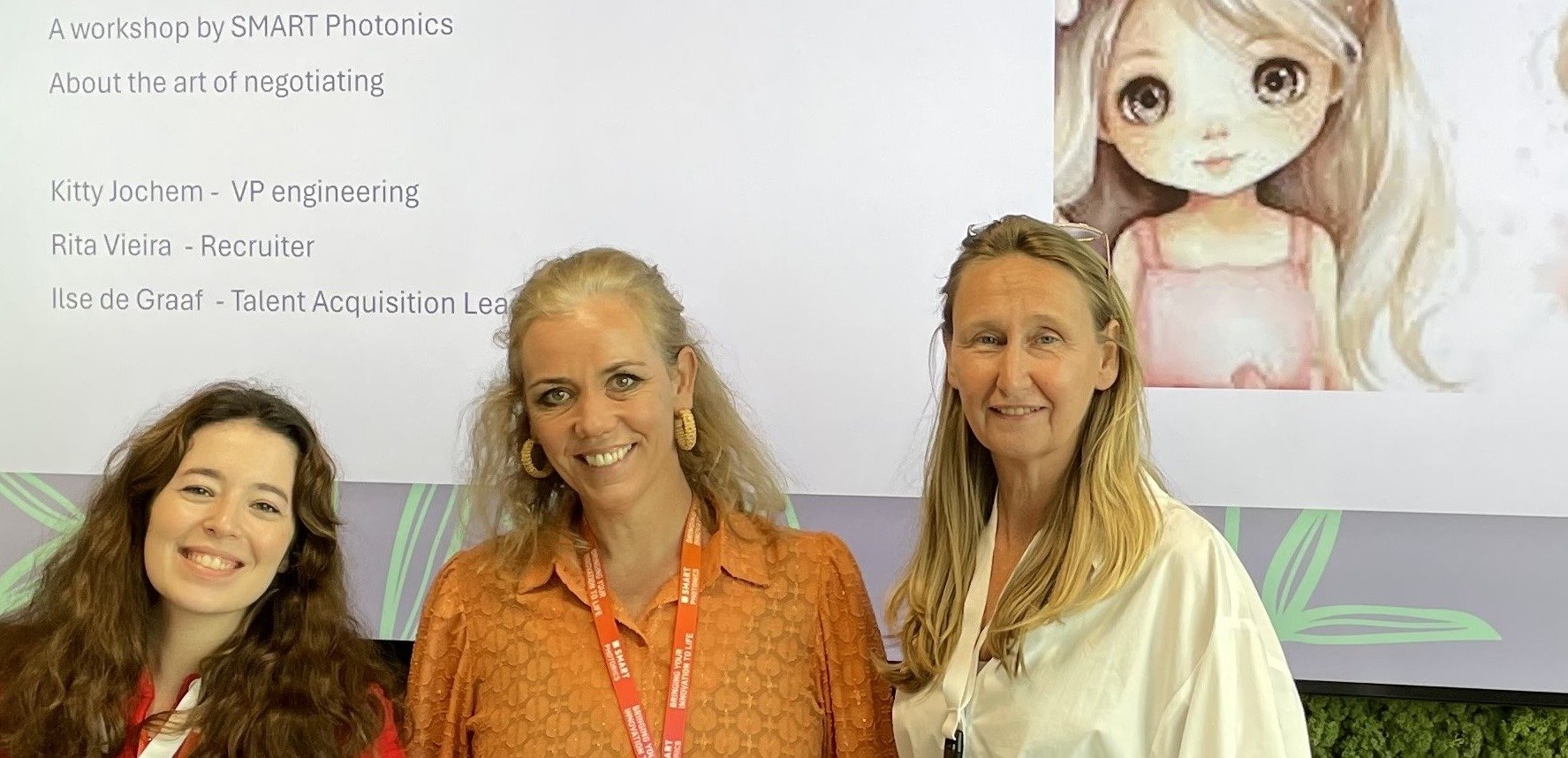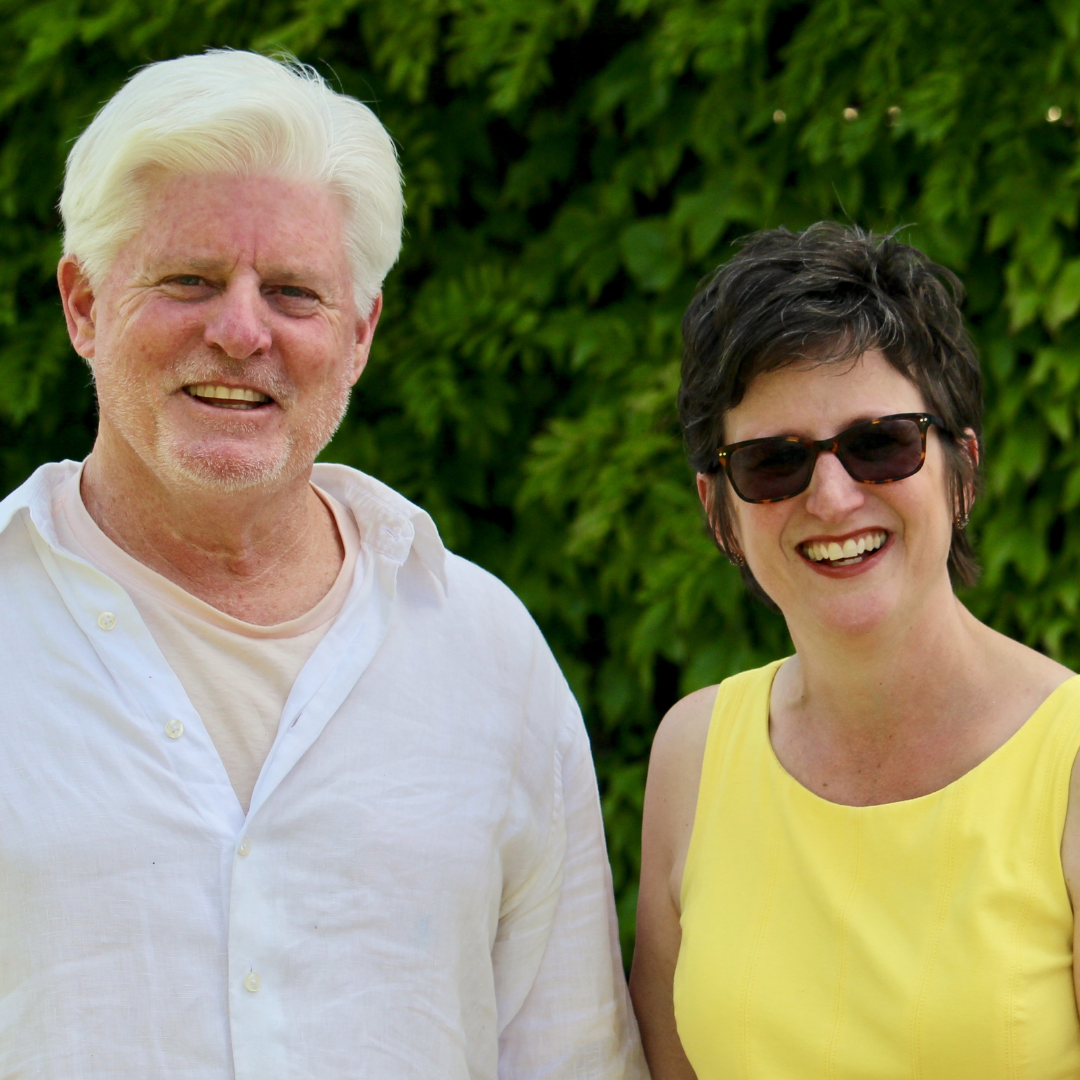


Kitty Jochem is a powerhouse in the world of integrated photonics and always tops the list when talking about women doing great things in the field of high tech. She began her career at Philips Research, working right here on the High Tech Campus Eindhoven before it even had that name. Later in her career, she became one of the first few employees at SMART Photonics.
Kitty has fought hard against societal norms to get where she is today. She is only at this point in her career because of a willingness to fight to get ahead and the experiences that have shaped her. Although being discouraged at an early age from pursuing a career in science, the rebel she was (and still is) went for it. And she succeeded! Today, Kitty is helping other women achieve their full potential and push through the biases that remain.
A chemist by training, Jochem began her career at NatLab, where she worked at the Philips Optoelectronics Center.
“I started here back in 1992 on indium phosphide and gallium arsenide technology. It was a self-financing activity where we made discrete photonics components for customers. The photonic integrated circuits we manufacture today are much more complex,” she explains.
Moving to the startup world
Many career moves later, she entered the entrepreneurial world of startups. Her first was the startup Cedova, where she met the future founders of SMART Photonics, Richard Visser and Luc Augustin.
Jochem was involved in SMART Photonics from almost the very beginning. She joined in the company’s first year and was the fifth person on board. She was also the first woman.
SMART Photonics is a foundry for integrated photonic circuits, using the power of light to create energy-efficient, fast and accurate microchips. The company is now approximately 200 people, with a strong engineering department and an operations division that works in five shifts in the clean room.

Attending the Fe+male Tech Heroes Conference in May are, from left, Rita Vieira, Ilse de Graaf and Kitty Jochem. They led a career workshop about the art of negotiation called "Nice girls just don't get it."
Jochem’s early career was devoted to R&D, but now it is combined with operations. She is in charge of the engineering department, which covers integration engineering and equipment and process engineering.
“Although my background was in chemistry, Photonics is more on the interface of physics. That broadened my scope. I did the engineering part for a long time, which gave me the full insight and processing of these III-V* materials,” she says about her evolving path.
“I try to build the full engineering team in such a way that the smaller teams have the trust and confidence that they are self-sufficient. That is how I like to build. Then you get one-plus-one-is-three,” she continues. “I’m always looking for the right person. With the right person in the right place, you rise.”
Early discouragement
Jochem didn’t get to where she is today easily. She almost never got here at all.
When she was in secondary school considering university programs, she encountered a dean who had strong opinions about her field of study.
“Without asking him, he told me that I was not fit for a technical study. He said, ‘You should not do a technical study. It's not for you,’” she remembers.
She persevered against this advice and still pursued science, but this comment has stayed with her.
“I was 17 then and it's still the sentence I hear in my mind. It really keeps me fighting and always doubting. It’s a constant drive for improvement,” Jochem says.
These comments did not cease when she entered the workforce in the early 1990s.
She was dissuaded from finishing a course at Philips Research while pregnant with her first child. Someone told her, “There's no use for you to follow this anymore because you're going to be in the kitchen.”
When she was pregnant, she heard comments like, “You can only work zero or 100%. This will influence your career.”
On the schoolyard, she heard “You work long hours. Don’t you think you miss out?” from other mothers.
“These kinds of things fire up your spirit,” Jochem says. “There was always something in my mind that someday it will be better.”

We still have a ways to go
When Jochem started at Philips Research, she walked into the canteen for lunch only to see one or two women among a sea of men.
We’ve made great strides in supporting women and mothers, but we aren’t there yet.
The environment is significantly different at SMART Photonics today. The company is very supportive of women and diversity, backing initiatives around the region. However, the engineering department still lacks a significant number of women, who account for only 10%.
To combat this, Jochem is actively mentoring women in the high tech industry, something she didn’t have growing up.
She’s trying to infuse women, including her daughter, with confidence. Why? Because she still has the gut feeling women need to deliver just a bit extra to succeed, and that the commitment of mothers in the workplace is still sometimes questioned.
“I’m pulling women through,” she says. “I like to have discussions about what makes them feel less confident or what they need to [advance]. The most important thing is that they're confident and not saying, ‘No, I can’t do this.’ That's something which we all need to learn.”
Jochem is now a role model to many women in the Brainport tech ecosystem, but it still surprises her to hear it.
“Sometimes, a woman comes to me and says, ‘You're my role model, but it's not something which is conscious with me during the day.’”
That’s why she believes it’s important to reach out to other women in your field for mentorship. Women are here in the high-tech ecosystem, but they don't always recognize themselves as being role models or think they're extraordinary.
“For a woman starting in high tech, if there is a high tech, more seasoned woman in the company, connect,” she says. “Ask for mentorship or at least to be able to discuss certain experiences you have within the company and to become stronger.”
Join in to influence change
Jochem has seen the High Tech Campus Eindhoven evolve over her career to what it is today. At the same time, she has also seen opportunities for women grow and evolve, and she is a firm believer in supporting women’s initiatives.
“When you want things to be ordinary, don't make them extraordinary. But that being said, things are not ordinary, so you need to do something extraordinary. Until they are ordinary, you need to create awareness and improve.”
*III-V materials, such as indium phosphide and gallium arsenide, are known for their direct bandgaps and high carrier mobilities, making them suitable for active components like lasers and photodetectors.